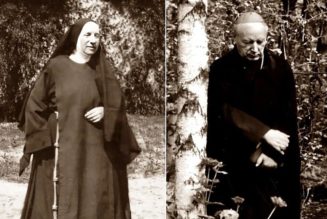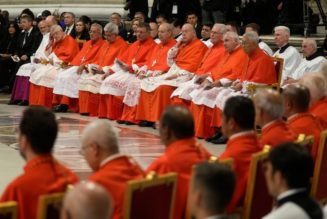“There is no greater blessing on earth than when husband and wife rule their home in harmony of mind and will.”
Aristotle, Economics
The notion of ‘ruling’ a home might seem outdated. We can wonder whether some other notion or term could better capture the blessing of what man and wife do together.
In answer I suggest the notion of ruling highlights precisely what is sorely missing in our understanding and practice of household. Household is a central venue of human life. It’s not a side-stage; it’s not ancillary; it’s not a mere steppingstone. It’s also not simply a nursery of the young—as noble as that would be.
It is a suitable place to raise up the young precisely because it is first center stage of enacting human life. If a husband and wife do not make a life together in the home, what would they pass on to their children?
That a household calls for rulers—and two at that!—is a function of its being a community naturally ordained to the whole human good itself, not some mere part or aspect of it. Here especially, ruling is an office of deep significance demanding as much and more than a man and woman can muster in service of human flourishing.
To rule is to direct what is ruled to its end, its fulfillment. Done well it is a masterpiece. Yet the lily that rots smells the worst. There always have been and will be perversions of ruling—and this perhaps especially in the household. Aware of this, Plato expresses in the Republic a cornerstone of human life: “No one in any position of rule, insofar as he is a ruler seeks or orders what is advantageous to himself, but what is advantageous to his subjects; the ones of whom he is himself the craftsman.” True ruling then is to craft that greatest of crafted-things: the good life with those we love.
In the text cited from Aristotle, having noted that husband and wife will encourage and support one another in all things, he continues:
In the first place they will strive to perform all duty toward their parents, the husband towards those of his wife no less than toward his own, and she in her turn toward his. Their next duties are towards their children, their friends, their estate, and their entire household which they will treat as a common possession; each vying with the other in the effort to contribute most to the common welfare, and to excel in virtue and righteousness; laying aside all arrogance, and ruling with justice in a kindly and unassuming spirit.
What a masterpiece of human relations, including even (perhaps especially) the in-laws! This a husband and wife craft together, discerning a wonderful plan written into nature, and giving order to the life they share with one another, and so many others. It is of this Aristotle made bold to say, “There is no greater blessing on earth.”
**ANNOUNCING** SIGNUP NOW: Take Man of the Household or Woman of the Household in a guided group this March. More Information Here.
TODAY’S VIDEO: A Husband’s Mission: Choosing to Accept it
Note: The text ‘Economics‘ is traditionally attributed to Aristotle, though this attribution is disputed. It might be written by someone of his school.
“Well, you see, my property is enough to supply me with all my needs…” Socrates, in Xenophon’s Estate Manager While Socrates was not destitute, the value of his estate was relatively low. Yet he expresses gratitude for his financial situation. He assures his friend…
“Beautiful things are those which please when seen.” Thomas Aquinas, Summa theologiae This much is clear if we have eyes to see: beauty is a first principle in the formation of the world. We could even say it is the principle. The natural world and all its processes…
Husband, father, and professor of Philosophy. LifeCraft springs from one conviction: there is an ancient wisdom about how to live the good life in our homes, with our families; and it is worth our time to hearken to it. Let’s rediscover it together. Learn more.












